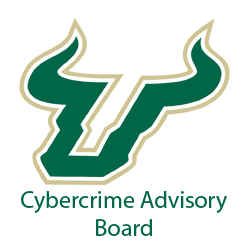
Social Media and Cybersecurity Link
When it comes to our social media accounts, we tend to post personal information about ourselves. We share our interests, hobbies, opinions and more. If you think about it, there’s a lot of personal data that we share on our social media accounts.
The problem is that the information we post online tends to stay online forever. Even if we delete something from our own pages, it’s still out there in cyberspace. Thus, this can make your personal account a breach of critical information for cybercriminals.
Phishing Attacks
According to the FBI, cybercriminals often use phishing attacks to gain access to their targets’ personal accounts. Phishing is a form of social engineering where scammers try to convince you that they’re from a legitimate company and ask for your personal information. If you fall for it, then the scammer will have your information and can use it fraudulently in any way that suits them.
But, when it comes to your social media account, they might be able to utilize the information you freely give out to bypass the necessity of phishing emails or convincing cold calls. They could use your posts and pictures to create a false account as a way of gaining access to other people’s accounts, using your identity to ‘phish’ the company you work for, or they might even impersonate you online as a cover for their illegal operations.
Protecting Against Social Media Phishing
The best way to protect yourself from this type of scam is by ensuring that your posts are private and that you don’t give out any personal information about yourself online. If someone does ask for your social media password, then make sure to verify their identity before handing it over.
As long as you remain vigilant and don’t fall for any scams, then you should be able to avoid this type of social media phishing. If you ever have any doubts or concerns about an online interaction, then it’s best to just ignore the message and move on.
Two-Factor Authentication
Though vigilance is key, you can add even more security to ensure that your account is completely secured. You can do this by setting up two-factor authentication (2FA) on your social media accounts.
This means that whenever someone logs in to your account, they will be required to enter a code that is sent to their mobile device as well as enter their password. This 2FA code ensures that only you have access to your account because it requires both factors of authentication.
Finally, Your Social Media Password
Many users fall into a poor internet habit of using a single password for all of their online accounts. This is a bad idea, as it means that if someone cracks your password for one account, they can easily access all of your other accounts.
This practice also makes it easier for hackers to access sensitive information like credit card numbers or bank accounts that are linked to your social media account. The best thing you can do is create unique passwords for every account you have and make sure that they are at least 10 characters long with a combination of numbers, letters and symbols.
But, this isn’t all the tips and tricks there are for a safer online experience. If you want more great cybersecurity essentials, our team at Arruda Group regularly provides great information like the above at our website.



